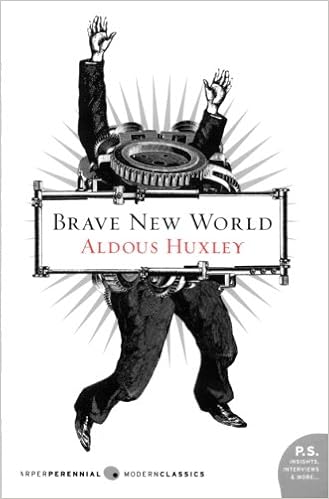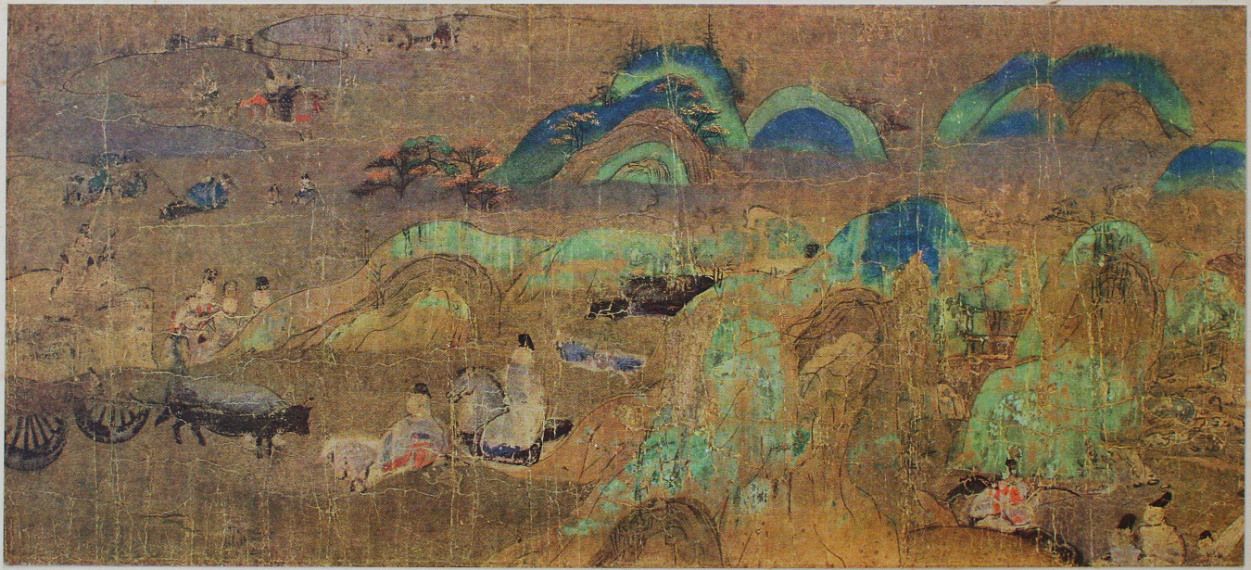
It is the early 1930s. At the Marcia Blaine School, located in Edinburgh, Scotland, a class of ten-year-old girls begins two years of instruction with Miss Jean Brodie, a charismatic teacher at the Junior school who claims again and again to be in her “prime.” She provides her pupils with an energetic if unorthodox education in unauthorized topics as various as poetry, makeup, Italian fascism under Mussolini, and her own love life, believing that Goodness, Truth, and Beauty are of supreme value, and that the arts hold a higher place than the sciences. In time, Miss Brodie singles out six girls as special to her, and who she intends to mold into “‘the crème de la crème’”: Sandy Stranger, Rose Stanley, Mary Macgregor, Jenny Gray, Monica Douglas, and Eunice Gardiner. These girls come to be known as the Brodie set, whom Miss Brodie culturally develops and confides in. However, in one of the novel’s characteristic prolepses (fast-forwards), we learn that one of these girls will eventually betray Miss Brodie, though Miss Brodie never learns which.
The girls’ other teachers at the Junior school include the art master, the handsome, sophisticated Mr. Teddy Lloyd, a Roman Catholic who lost his arm during World War I, as well as the singing master, the short-legged and long-bodied Mr. Gordon Lowther. Both of these men come to love Miss Brodie, but Miss Brodie is passionate only about Teddy Lloyd, whom she commends for his artistic nature. The two kiss once, as witnessed by Monica Douglas, but Miss Brodie soon renounces her love for Teddy Lloyd, as he is married with six children. Instead, she commences an affair with the unmarried Mr. Lowther during a two-week leave of absence (although she claims that her absence is due to illness).
Get the entire Miss Jean Brodie LitChart as a printable PDF.
Download it!
Meanwhile, the highly imaginative, psychologically penetrating Sandy becomes increasingly obsessed with Miss Brodie’s love life, going so far as to imagine her teacher having sexual intercourse. At one point in their two years in the Junior school, Sandy’s best friend Jenny is accosted by a man exposing his genitals to her near the Water of Leith (a river that runs through Edinburgh), an incident investigated by a female policewoman. Sandy falls in love with the idea of this policewoman, and imagines that she is on the police force alongside her, with the purpose of preventing sex altogether. She also imagines that she and her invented policewoman should investigate the love affair between Miss Brodie and Mr. Lowther.
At the age of twelve, the girls leave Miss Brodie’s class and graduate to the Senior school, taught by teachers like the excellent science instructor Miss Lockhart, all of whom are committed to the authorized curriculum as Miss Brodie was not. Nonetheless, the girls retain their group identity as the Brodie set, even though they have nothing in common save being picked out by Miss Brodie, whom they visit extracurricularly as they did as students at the Junior school, going with her to the ballet and the like.
The headmistress of Blaine, Miss Mackay, has all the while been fostering a professional disapproval of Miss Brodie’s educational methods and scorn for the group identity of her six special girls; she wishes Miss Brodie would leave Blaine to teach at a progressive school, but Miss Brodie dismisses the idea. Consequently, Miss Mackay attempts to pump the Brodie girls for incriminating facts about their former teacher that might allow her to dismiss Miss Brodie. Miss Mackay also attempts to break the Brodie set up. Both attempts fail; the Brodie girls are unflaggingly loyal to their beloved teacher and to the principles of individualism, love, and loyalty she instilled in them.
Miss Brodie’s love affair with Mr. Lowther continues; when the sewing teachers at Blaine, the sisters Miss Ellen and Alison Kerr, begin to work as housekeepers for Mr. Lowther, and encroach on Miss Brodie’s exclusive claim to him, she asserts her influence by coming to Mr. Lowther’s house whenever the Kerr sisters are there so that she can oversee them. She criticizes them for skimping on their employer’s meals, and sets about fattening Mr. Lowther up. She also begins to invite her special girls, now thirteen years old, to socialize with her in pairs at her paramour’s house. She asks them often about Mr. Lloyd, for several of the girls, especially Rose Stanley, have begun to sit for portraits with their art teacher. Miss Brodie especially enjoys hearing about how each face Mr. Lloyd paints strangely resembles her own. One day in Mr. Lloyd’s studio, Sandy points this fact out to Mr. Lloyd himself, glaring at him insolently; Mr. Lloyd kisses the young girl, and she doesn’t know what to think about it.
As the girls grow from thirteen to fourteen, fourteen to fifteen, Miss Brodie determines that she can trust Sandy absolutely as her informant and confidant. Miss Brodie is also becoming increasingly fixated on the idea that Rose—as the most instinctual of the Brodie set and famous for sex (although Rose has no interest in sex)—should have a love affair with Mr. Lloyd as her, Miss Brodie’s, proxy. Miss Brodie additionally plans on
Sandy being her informant regarding the affair. Indeed, so fixated does Miss Brodie become on this strange plan that she neglects Mr. Lowther, who, to everyone’s surprise, soon becomes engaged to the Senior school science instructor Miss Lockhart.
During this time, another girl, the “rather mad” and delinquent Joyce Emily Hammond, is sent by her rich parents to Blaine as a last resort. She desperately wants to attach herself to the Brodie set, but they won’t have anything to do with her. Miss Brodie, however, will. She spends time with Joyce Emily one-on-one, and privately encourages her in her desire to run away and fight in the Spanish Civil War under Francisco Franco’s Nationalist banner (Miss Brodie admires Franco, who like Mussolini is a fascist). Swiftly and shockingly, Joyce Emily does so, only to be killed when the train she is traveling in is attacked. The school holds a remembrance service for her.
The Brodie girls, having turned seventeen and upon entering their final year at Blaine, begin to drift apart. Mary Macgregor and Jenny Gray leave before taking their final exams, Mary to become a typist, Jenny to enroll at a school of dramatic art. Monica Douglas becomes a scientist, and Eunice Gardiner becomes a nurse and marries a doctor. Rose makes a good marriage, and easily shakes off Miss Brodie’s influence. Sandy decides to pursue psychology.
During this period, both Sandy and Rose, now eighteen years of age, continue to go to Mr. Lloyd’s house to model for him. One day, alone with Mr. Lloyd while his wife and children are on holiday, Sandy commences a love affair with him, usurping Rose’s role in Miss Brodie’s plan (Rose never had any erotic feelings for Mr. Lloyd in any case, nor he for her). The two carry on for five weeks during the summer and even once Mr. Lloyd’s wife and children return home. But by the end of the year Sandy loses interest in Mr. Lloyd as a man, becoming more and more exclusively interested in his painter’s mind, as well as in his obsession with Miss Brodie as it is documented on his canvases. She eventually leaves Teddy altogether, but takes with her his Roman Catholic beliefs.
That following autumn, Sandy approaches Miss Mackay and announces for reasons never made explicit that she is interested “‘in putting a stop to Miss Brodie.’” She tells Miss Mackay about Miss Brodie’s side interest in fascist politics and suggests that by following up on this lead Miss Mackay will at last have the incriminating evidence she needs to dismiss Miss Brodie. And indeed, presumably connecting Miss Brodie to Joyce Emily’s running away, Miss Mackay at last succeeds in forcing Miss Brodie to retire. Sandy’s betrayal is complete, and it won’t be until the end of World War II, when she is near death, that Miss Brodie can bring herself to think that it was her most intimate confidant Sandy who betrayed her.
By middle age, Sandy is the author of a famous psychological treatise entitled “The Transfiguration of the Commonplace”; she is also a Roman Catholic nun called Saint Helena of the Transfiguration. Over the years, she receives several visitors at her convent, mostly Brodie girls, and invariably conversation turns to Miss Brodie: Sandy suggests that Miss Brodie was silly but also an enlarging presence, yet she also suggests that she nor any other Brodie girl owed Miss Brodie any loyalty. One day, a young man comes to the convent to interview Sandy about her famous work in psychology, asking her at one point, “‘What were the main influences of your schooldays, Sister Helena? Were they literary or political or personal? Was it Calvinism?’” Sandy responds: “‘There was a Miss Jean Brodie in her prime’”; it would seem that she of all the Brodie set was most deeply influenced by their strange, charismatic teacher.










































